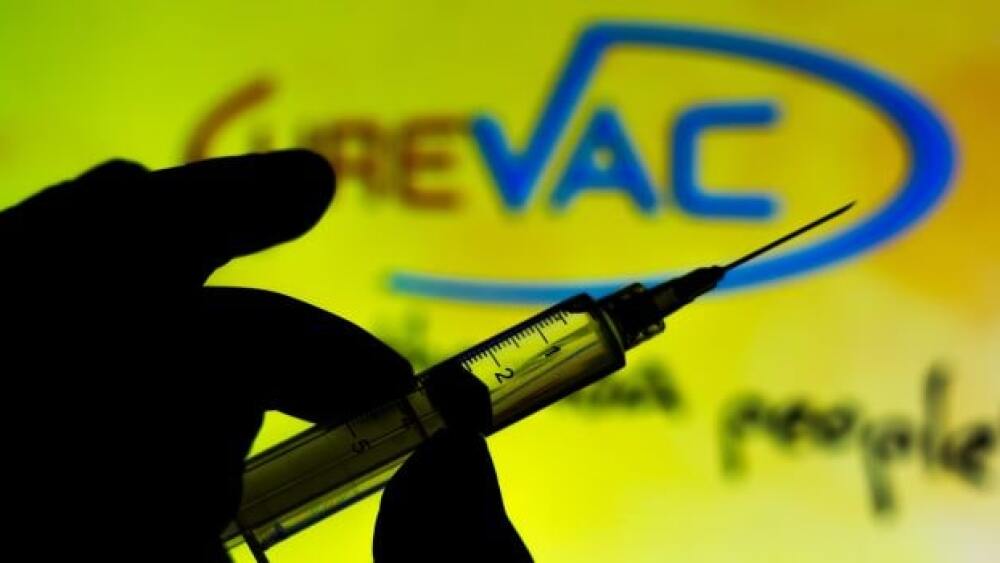Germany’s CureVac announced it has enrolled the first volunteer in the pivotal Phase IIb/III trial of its own mRNA vaccine candidate, CVnCoV against COVID-19.
rafapress/Shutterstock
Although much of the current attention has been on the COVID-19 vaccines by Pfizer-BioNTech, Moderna, and AstraZeneca-University of Oxford, dozens of other companies around the world are continuing to develop their own COVID-19 vaccines. Germany’s CureVac announced it has enrolled the first volunteer in the pivotal Phase IIb/III trial of its own mRNA vaccine candidate, CVnCoV against COVID-19.
The technology used for the CureVac vaccine is similar to that utilized by Pfizer-BioNTech and Moderna. It is an optimized, non-chemically modified mRNA that codes for the prefusion stabilized full-length spike protein of the SARS-CoV-2 virus. Earlier-stage trials have demonstrated the vaccine was generally well-tolerated at all doses and induced strong antibody responses as well as the first indication of T-cell activation. The immune response was similar to that observed in recovered COVID-19 patients. The trial will utilize a 12-microgram dose.
The Phase IIb/III trial, dubbed HERALD, will include more than 35,000 volunteers in Europe and Latin America.
“With the start of the pivotal Phase IIb/III study, we have reached another important milestone in the development of our vaccine candidate, CVnCoV,” said Franz-Werner Haas, CureVac’s chief executive officer. “The clinical safety and immunogenicity data achieved to date look promising and we are hopeful that this trial will continue to demonstrate the impact of mRNA technology and our vaccine to prevent COVID-19, and to help defeat this pandemic.”
The HERALD trial will begin with the Phase IIb section, which is expected to merge directly into the Phase III efficacy portion. Participants 18 years or older will receive a two-dose regimen of either the vaccine ori a placebo.
The trial is designed to evaluate safety, including showing the efficacy of the vaccine in preventing first episodes of confirmed COVID-19 cases of any severity, and in preventing moderate to severe confirmed cases of COVID-19 in people who have never been infected with COVID-19. There will also be a one-year extension study where the subjects are monitored for another year.
Unlike the Pfizer-BioNTech vaccine, which needs to be stored at about -94 degrees F, the CureVac vaccine can be stored for about three months at standard refrigerator temperatures.
This entry marks the 14th company to take a COVID-19 vaccine into Phase III clinical trials, according to the World Health Organization.
Although they are lagging behind several other companies, manufacturing of the leading vaccines takes time and the addition of more vaccines sometimes in 2021 will benefit in a broader global rollout.
The Pfizer-BioNTech vaccine has received approval in the UK, Canada and U.S. Dosing began last week in the UK and will start today in the U.S. It is still being evaluated by the European Medicines Agency (EMA) and other regulators. The Moderna vaccine will be evaluated by the U.S. Food and Drug Administration’s vaccines advisory committee on Thursday, December 17, and likely be granted Emergency Use Authorization on Friday or Saturday, with injections to begin on Monday, December 21, if all goes well. The Moderna vaccine is being evaluated by the EMA as well. The AstraZeneca-University of Oxford vaccine is running third and may be submitted to regulators for emergency authorization by the end of the year or early 2021.
CureVac has not partnered with large pharma companies to develop its COVID-19 vaccine and says it expects to be able to produce up to 300 million doses in 2021, and another 450 million in 2022. That is significantly less, for example, than Pfizer-BioNTech, which expects to manufacture 1.3 billion doses in 2021.
CureVac made the news earlier this year when it was rumored that the Trump administration was attempting to buy the company. However, CureVac’s management claims that never happened. CureVac has abandoned any plans to supply its vaccine in the U.S. It has a deal with the European Union to supply up to 405 million doses. In addition, Tesla, Elon Musk’s electronic vehicle company, is developing mobile vaccine bioprinters for CureVac, which are portable, automated mRNA production units that are designed for use in remote locations.





